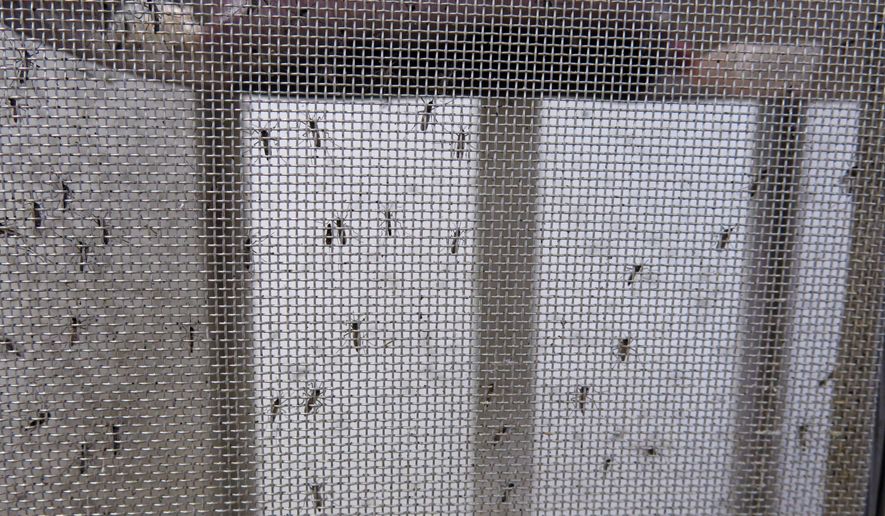Pharmaceutical giant Bayer has given Puerto Rico a “very substantial donation” to help it fight the Zika virus, including thousands of mosquito nets and units of birth control for women who want to avoid pregnancy during the outbreak, the philanthropic arm of the Centers for Disease Control and Prevention said Thursday.
Zika virus causes serious birth defects, so the CDC has advised pregnant women to avoid travel to areas where it is circulating on its own.
The agency on Thursday said that 168 pregnant women on the U.S. mainland and 142 in the U.S. territories, mainly in Puerto Rico, have showed evidence of Zika infection as of May 19.
At the same time, Puerto Rico is reeling from a fiscal crisis that threatens hospital services and health care programs.
Bayer’s donation to the island includes 10,000 mosquito nets, 700,000 mosquito-control tablets that can be used to treat the nets, 50,000 intrauterine devices and 40,000 units of oral contraceptives, according to the CDC Foundation.
“We must act quickly and on a large scale to address the threat of Zika in Puerto Rico,” CDC Director Tom Frieden said. “Bayer’s generous donation of bed nets, insecticide tablets and contraception can help women protect themselves from the devastating impact of this virus.”
Zika virus is causing infants to be born with abnormally small heads, a condition known as microcephaly, in Brazil and other Latin American countries. It is the first time that scientists have directly linked insect bites to serious birth defects.
“It is unprecedented, it is tragic and it is now proven,” Dr. Frieden said Thursday in a speech at the National Press Club.
Many of the affected countries have strict rules on abortion or contraception, kicking off a debate over how to deal with pregnancies that run into complications because of Zika.
In the meantime, the CDC Foundation said it is still seeking $20 million to broaden access to contraceptives in Puerto Rico.
Its turn to private donors comes as Congress tries to reconcile competing House and Senate measures to fund efforts to develop a better diagnostic test and a vaccine for Zika, while boosting local mosquito-control efforts.
The Senate struck a bipartisan deal that offers $1.1 billion emergency spending that isn’t offset with budget cuts elsewhere, while the House passed a bill that would take $622 million from the Ebola fight in West Africa and other health programs to deal with the mosquito-borne illness.
Both measures are far short of the $1.9 billion in emergency spending that President Obama requested, outraging the White House and Democratic allies who say GOP leaders are shortchanging the effort.
Republican leaders say the administration has already directed nearly $600 million to the fight and from other sources, and that appropriators are working to free up even more money as part of the fiscal 2017 spending process.
• Tom Howell Jr. can be reached at thowell@washingtontimes.com.




Please read our comment policy before commenting.